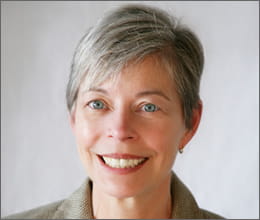
Jeanne Brett
Northwestern University |
Jeanne Brett is the DeWitt W. Buchanan, Jr. Distinguished Professor of Dispute Resolution and Negotiations. Her research is on culture and negotiation strategy and on dispute resolution. She is the convener of this conference. |
 |
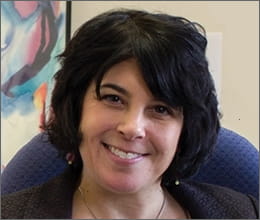
Michele Gelfand
University of Maryland |
Michele J. Gelfand is Professor Psychology and Affiliate of the RH Smith School of Business and Distinguished University Scholar Teacher at the University of Maryland. Her work has been published in Science, Proceedings of the National Academy of Sciences, Journal of Applied Psychology, Psychological Science, the Journal of Personality and Social Psychology, among others. She is the co-editor of the The Handbook of Negotiation and Culture (with Jeanne Brett, Stanford University Press) and The Psycology of Conflict and Conflict Management in Organizations (with Carston De Dreu, Erlbaum) and is the founding co-editor of the Advances in Culture and Psychology (with CY Chiu and Ying-Yi Hong, Oxforc University Press). |
 |
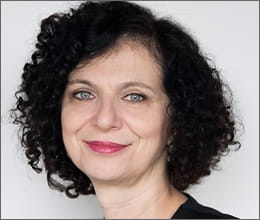
Batja Mesquita
University of Leuven, Belgium |
Batja Mesquita is Professor and Director of the Center of Social and Cultural Psychology at the University of Leuven (Belgium). Most of her research focuses on the dynamic relationship between culture and emotions. Her current research topics include emotional acculturation, and emotions in groups and dyads. Mesquita was a Senior and Associate Editor for Psychological Science and currently serves on the Editorial Boards of Emotion and Journal of Personality and Social Psychology. She is a Fellow on the Association for Psychological Science, Society for Personality and Social Psychology, American Psychological Associations and Member of the Belgian Royal Academy of Science. |
 |
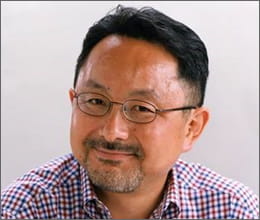
Shinobu Kitayama
University of Michigan |
Shinobu Kitayama received a Ph.D. from the University of Michigan, where he is currently Robert B. Zajonc Collegiate Professor of Psychology. His research focuses on cultural variations in the self and certain cognitive, emotional, and motivational processes that are linked to it. In recent years, he has contributed to a newly emerging field of cultural neuroscience by investigating the dynamic, recursive interaction between culture and the brain. He is also interested in genetic and epigenetic mechanisms in understanding human culture. He previously taught at several institutions including the University of Oregon, Kyoto University, Stanford University, and the University of Chicago. He is currently serving as Editor in Chief of the Journal of Personality and Social Psychology—Attitudes and Social Cognition. He was an elected Fellow at the Center for Advanced Studies in Behavioral Sciences (1995-1996 and 2007-2008), received a Guggenheim Fellowship (2010-2011), held the Earnest Hilgard Visiting Professorship at Stanford (2011), and has been inducted into the American Academy of Arts and Sciences (2011). |
 |

Don Ferrin
Singapore Management University |
Don earned his Ph.D. in 2000 from the University of Minnesota, and since then every single one of his research articles, chapters, and commentaries has had the word “trust” in the title (and trust as the major focus). Don’s research focuses on trust in leadership, trust development, trust in the context of interpersonal negotiation, trust repair, effects of culture on interpersonal trust, and trust networks. Don is former Deputy Editor-in-Chief of the Journal of Trust Research, and an Honorary Fellow of the First International Network on Trust. At SMU, Don teaches Negotiation in a range of MBA and MSc Programmes, and doctoral-level OB and Trust seminars. |
| |
|

Yoshi Kashima
University of Melbourne |
Yoshi Kashima is Professor of Psychology at the University of Melbourne. His research focuses on cultural dynamics – the formation, maintenance, and transformation of culture over time, with particular emphasis on culture of sustainability. He regards micro-level situated activities as critical for the shaping macro-level cultural processes, which in turn enable and constrain future situated activities. His writing has appeared in Psychological Review, Psychological Bulletin, Journal of Personality and Social Psychology, Science, and Nature Climate Change as well as others. He was Associate Editor of Journal of Personality and Social Psychology, and the President of the International Association for Cross-Cultural Psychology. |
 |
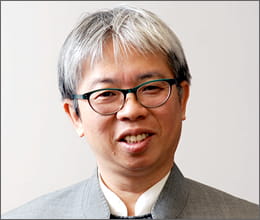
Chi-Yue Chiu
Chinese University of Hong Kong |
C-Y. Chiu received his PhD from Colombia University in social psychology, and is currently Li Choh-Ming Professor of Psychology and Dean of Social Science at the Chinese University of Hong Kong (CUHK). Before joining CUHK, he had taught at the University of Hong Kong, University of Illinois and Nayang Technological University. Professor Chiu has researched on multiculturalism and creativity, social psychology of globalization and polycultural psychology. The rich implications of his research on the development of personal social and cultural competences have been extensively exploited in education, management, marketing and legal studies, arts, sports, communication, and internal relations. |
 |

Mina Cikara
Harvard University |
Mina Cikara is an Assistant Professor in the Department of Psychology at Harvard University. She is the director of the Harvard Intergroup Neuroscience Lab, which adopts an interdisciplinary approach drawing on theory and methods from psychology and cognitive neuroscience to understand how the mind, brain, and behavior change when the social context shifts from "me and you" to "us and them." She focuses primarily on how group membership, threat, and prejudice disrupt the processes that allow people to see others as human and empathize with others. She is equally interested in the behavioral consequences of these processes: discrimination, conflict, and harm. |
 |
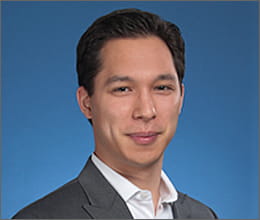
Hajo Adam
Rice University |
Hajo Adam is an Assistant Professor of Management at Rice University's Jones Graduate School of Business. Prior to joining Rice, he received his Ph.D. in Organizational Behavior from INSEAD and was a Postdoctoral Fellow at Northwestern University's Kellogg School of Management. Hajo studies culture and conflict. In his two primary and interrelated research streams, he explores 1) how multicultural experiences, cultural backgrounds, and cultural artifacts influence organizationally relevant psychological processes and behaviors (e.g., creativity, identity, decision-making, and task performance, and 2) how people both from the same culture and from different cultures, deal with emotions in conflict situations. |
 |

Mara Olekalns
Melbourne Business School |
Mara Olekalns is a Professor of Management (Negotiations) at the Melbourne Business School. Mara’s research, which focuses on social processes and communication in negotiation has three broad themes: how interpersonal trust and other contextual factors influence negotiators’ ethical thresholds, including willingness to use of deception; how factors such as dyadic trust build relational resilience, the capacity to withstand and overcome adverse events in negotiation; and, strategies that protect female negotiators’ economic and social outcomes, including their perceived trustworthiness. She is a past President of the International Association of Conflict Management, and a past Chair of the Academy of Management’s Conflict Management Division. |
 |
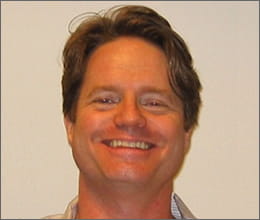
Michael Morris
Columbia Business School |
Michael Morris is the Chavkin-Chang Professor at Columbia University in the Business School and the Psychology Department. Previously he worked at Stanford University and, as a visitor, at universities in China, Japan, Korea, and Spain. He has studied cultural differences in judgements, decisions, interactions and relationships. In recent years his research focuses on the psychological dynamics of cultural influence, learning, adaptations, and change. |
 |
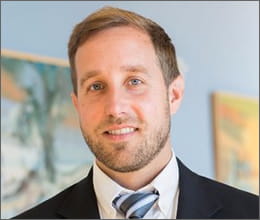
Brian Gunia
Johns Hopkins |
Brian Gunia (PhD in Management, Northwestern University) is an associate professor at the Johns Hopkins Carey Business School. His research, which focuses on the simple ways that people can help themselves act more ethically and/or negotiate more effectively, has been published in several management and psychology journals including the Academy of Management Journal, Journal of Applied Psychology, and Psychological Science. Brian teaches classes in negotiation and organizational behavior, and he previously worked as a consultant at Deloitte. |
 |
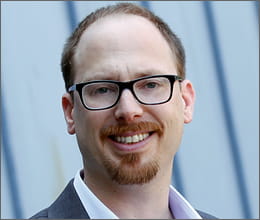
Adam Galinsky
Columbia Business School |
Adam Galinsky is the chair of the Management Division at Columbia Business School. He has published more than 200 articles and teaching cases on management and social psychology. His research and teaching focus on leadership, power, negotiations, decision-making, diversity, and ethics. He co-authored the critically acclaimed and best-selling book, Friend & Foe (Penguin Random House, 2015). His Ted talk, How to Speak Up for Yourself, was the most watched Ted talk the week it was released, with over 2.5 million views in its four months. Poets and Quants selected him as one of the World's 50 Best B-School Professors (2012). |
 |
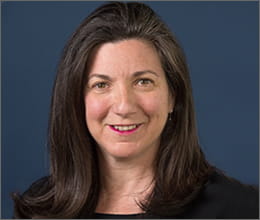
Shirli Kopelman
University of Michigan |
Shirli Kopleman is a leading researcher, expert, and educator in the field of negotiations. Her research has been featured in media outlets, such as Businessweek, Fortune, and Harvard Business Review, and honored with prestigious awards for work published in distinguished academic journals. Professor Kopleman's framework of Negotiating Genuinely (R) enables one to draw on personal strengths to be simultaneously collaborative and assertive, lead with emotions, enhance creativity, and align with one's moral compass to achieve goals and maximize economic profits sustainably, while fostering well-being. |
 |
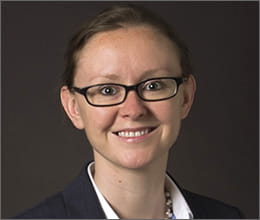
Laura Rees
University of Missouri,
Kansas City |
Laura Rees is an Assistant Professor of Organizational Behavior at the Bloch School of Management at the University of Missoury-Kansas City. She received her doctoral degree in management and organizations from the Ross School of Business at the University of Michigan and was a Post-Doctoral Fellow at the Owen Graduate School of Management at Vanderbilt University. Her primary research areas include the intra- and interpersonal effects of complex emotional experiences in th workplace across a veriety of contexts, such as decision-making, social influence, interpersonal judgement, and negotiation. |
 |
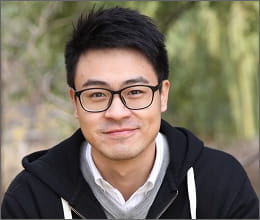
Jing Jing Yao
IESEG, France |
Jingjing Yao is an assistant professor at IESEG School of Management, France. He obtained his PhD of organisation management in Peking University, China. His research interests are negotiation, trust, and cross-cultural studies. |
 |
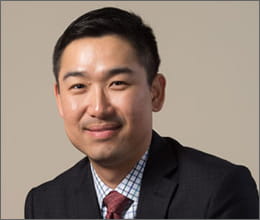
Tony Kong
University of Houston |
Dejun Tony Kong is an Assistant Professor of Management in the University of Houston's Bauer College of Business. His research focuses on (1) trust (in negotiations, leadership, teams, and cross-cultural settings), (2) positive organizational behavior (e.g., humor, passion, gratitude), and (3) workplace diversity. He has published about thirty journal articles, many of which have appeared in the Academy of Management Journal, Journal of Applied Psychology, Journal of Cross-Cultural Psychology, Journal of World Business, and Organizational Behavior and Human Decision Processes, as well as numerous book chapters and a co-edited book on leadership and conflict. He currently serves on the editorial review boards of the Academy of Management Review (special topic forum), Journal of Management, Journal of Organizational Behavior, Journal of Trust Research, and Leadership Quarterly. |
 |

Li Ma
Peking University |
Li Ma is an associate professor at Guanghua School of Management, Peking University. He obtained his Ph.D. from Washington University in St. Louis, and conducted his research at DRRC in the academic year of 2014-2015. Li Ma studies negotiations both in the lab and the field. In the lab, he studies how power manifestations of alternatives and status influence the American and Chinese negotiators' behaviors. In the field, he studied the iron ore negotiations and the international acquisitions. His work was published in Journal of International Business Studies, Leadership Quarterly, Human Relations, Journal of Organizational Behavior, Journal of Business Ethics, among others. |
 |

Niro Sivanathan
London Business School |
Dr Niro Sivanathan’s research and teaching have received international recognition. His research explores how the psychology of the self – specifically our motivation to maintain the integrity of the self – influences decision-making. In addition, he explores how social hierarchy, through the psychological experience of power and status, regulates our judgment and behaviours. His work has been presented at leading international conferences and published in the top international journals in the field of Management and Psychology, such as: Organisational Behaviour and Human Decision Processes, Administrative Science Quarterly, the Journal of Applied Psychology, Psychological Science, Personality and Social Psychology Bulletin and the Journal of Experimental Social Psychology. His research has also garnered international press coverage at CNN, Financial Times, Time Magazine, Wall Street Journal, Washington Post, Sunday Times and Forbes. Before joining the London Business School in 2008, Niro was a visiting Assistant Professor at the Johnson School of Management, at Cornell University, and recently has been a visiting Scholar at the Wharton School at the University of Pennsylvania. Dr Sivanathan earned his PhD in Management & Organisations from Kellogg School of Management at Northwestern University. He also holds an MSc in Management and a BA in Psychology (Honours) from Queen’s University in Kingston, Canada. |
 |
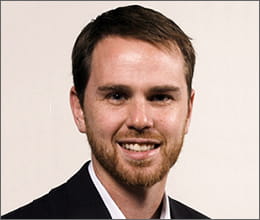
Will Maddux
University of North Carolina |
William Maddux is a Professor of Organizational Behavior at the Kenan-Flagler School of Business at the University of North Carolina, Chapel Hill. He holds a Ph.D. in Social Psychology from Ohio State University, and a B.A. in Psychology from Johns Hopkins University. He has also held faculty positions at INSEAD, the Kellogg School of Management at Northwestern University, and The Wharton School at the University of Pennsylvania. His research interests include cross-cultural psychology, creativity, decision-making, negotiations, and leadership |
 |

Wendi Adair
University of Waterloo |
Wendi L. Adair is Associate Professor and Director of University of Waterloo’s Culture at Work Lab in Ontario, Canada. Dr. Adair’s research examines the impact of culture on communication processes (negotiation, conflict management, teamwork) and identity (work values, meaning of work, third culture) in the multicultural workplace. She is Associate Editor of Negotiation and Conflict Management Research and Past President of the International Association for Conflict Management. Dr. Adair’s research appears in multiple management and psychology journals as well as edited volumes, and she is co-editor of the Handbook of Research on Negotiation (Edward Elgar, 2013). |
 |
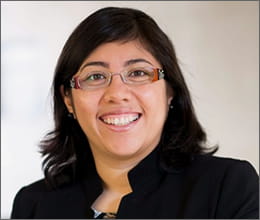
Jimena Ramirez-Marin
IESEG France |
Jimena Y. Ramirez‐Marin is an active young scholar committed to negotiation teaching and research. She focuses on understanding the influences of culture on expectations, use of strategy, and negotiation outcomes. She has collaborated internationally with colleagues at the University of Amsterdam, Leiden University, Kellogg School of Management and Georgetown University. Her research has been awarded by the International Association for Conflict Management and the Academy of Management. She is Assistant professor at IÉSEG School of Management and Director of the IÉSEG Center on Negotiation. |
 |
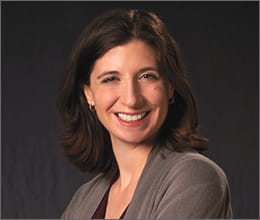
Taya Cohen
Carnegie Mellon |
Taya R. Cohen, PhD (University of North Carolina at Chapel Hill, 2008), is an Associate Professor of Organizational Behavior and Theory at Carnegie Mellon University’s Tepper School of Business and holds the Carnegie Bosch Junior Faculty Chair. Her current research focuses on understanding moral character and how it influences behavior in organizations. She teaches courses on Negotiations and on Managing People and Teams for MBA students. Prior to joining the faculty at Carnegie Mellon in 2010, Cohen spent two years as a postdoctoral fellow in the Dispute Resolution Research Center at Northwestern University’s Kellogg School of Management. |
 |
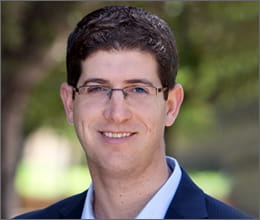
Nir Halevy
Stanford University’s
Graduate School of Business |
I am an Associate Professor of Organizational Behavior at Stanford University’s Graduate School of Business. My research explores how individuals and groups manage their social interdependence, and aims to advance knowledge on strategic decision making; cooperation and competition within and between groups; conflict, negotiation, and dispute resolution; brokerage and third party behavior. I also study how social hierarchies and contracts, two means that groups and organizations commonly employ to coordinate and control social behavior, influence interactions and relationships. |
 |

Maddy Janssens
KU Leuven |
Maddy Janssens is a Full Professor and Campus Dean at the Faculty of Economics and Business, KU Leuven, Belgium. Interested in the relationship between ‘difference’ and emancipatory practices in organizations, areas of inquiry have been expatriate management, global teams, language and translation, diversity (management), and interorganizational collaborations. Her current research works with cosmopolitanism in order to consider how global connectivity is translated into ethical and political issues in global organizations. Her work has been published in leading journals such as Academy of Management Journal, Journal of Management Studies, Organization Studies, Journal of International Business and Organization. |
 |

David Sloan Wilson
The State University of New York |
David Sloan Wilson is SUNY Distinguished Professor of Biology and Anthropology at Binghamton University and president of the Evolution Institute. He has made foundational contributions to evolutionary theory, notably Multilevel Selection Theory, which shows how adaptations can evolve (or fail to evolve) at all levels of a multi-tier hierarchy of units, such as genes to ecosystems in biological systems or individuals to large-scale governance in human social systems. He is also at the forefront of applying these ideas to improve the quality of life in the real world. His last book was Does Altruism Exist? Culture, Genes, and the Welfare of Others (Yale/Templeton 2015). His next book is This View of Life: Completing the Darwinian Revolution and Evolving the Future (Pantheon 2019). Wilson manages the online magazine This View of Life and is a frequent contributor to the online magazine Evonomics.com. |